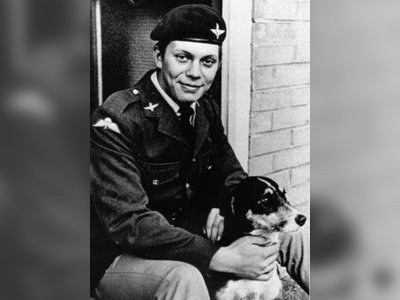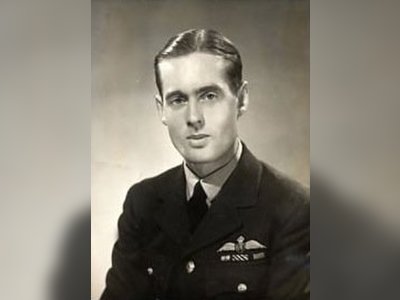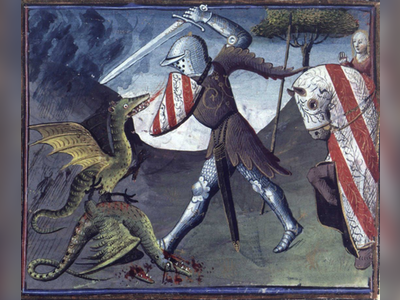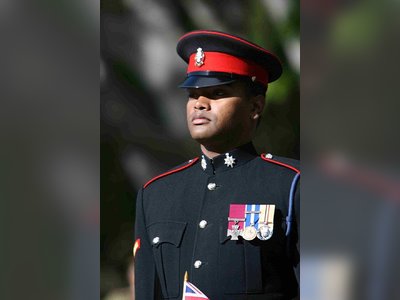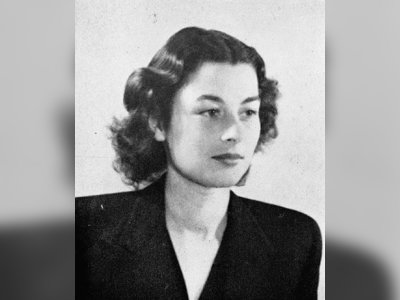British Heritage
Remember, Cherish, Learn.
beta
Andrew Fitzgibbon
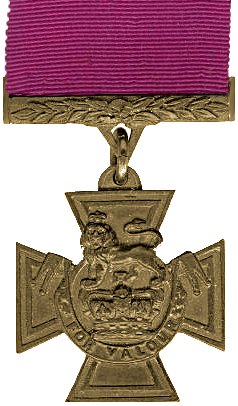
A Victoria Cross Hero's Contribution to British Heritage.
One name that conspicuously shines in the annals of British military history is Andrew Fitzgibbon. His deeds, accomplished at an impressively young age, symbolize bravery, commitment, and humanity. As a pivotal figure in British military history, Fitzgibbon's actions and legacy continue to exert a profound impact on Britain's heritage. His youthful courage under fire, his dedication to his fellow soldiers, and the honor he brought to his country have not only enriched British heritage but also stand as an eternal symbol of selfless service.
Born on 13 May 1845 in Pithoragarh, Uttarakhand, India, Andrew Fitzgibbon grew up far from the green hills and coastal cities of the British Isles. At the tender age of fifteen, he was a Hospital Apprentice in the Indian Medical Establishment, serving with the Indian Army. He was attached to the 67th Regiment, which later became The Royal Hampshire Regiment. His young age and humble beginnings did not deter him from achieving great things and leaving an indelible mark on British military history.
The Victoria Cross (VC) is the most prestigious and highest award bestowed for valour "in the face of the enemy" in the armed forces of the British Commonwealth. Fitzgibbon's moment of heroism occurred during the Third China War, more commonly known as the Second Opium War.
On 21 August 1860, at the capture of the Northern of the Taku Forts in China, Fitzgibbon proved his mettle. As his wing of the 67th Regiment took up a position perilously close to the fort, under a barrage of enemy fire, Fitzgibbon carried out an act of exceptional bravery. Despite the risk, he ran across open ground to attend to a wounded dhoolie-bearer and another injured man. During his heroic rescue, Fitzgibbon was himself severely injured.
This courageous act earned Fitzgibbon the Victoria Cross, making him possibly the youngest ever recipient of this prestigious award, at just fifteen years and three months old. He shares this youthful distinction with Thomas Flinn, while Jack Cornwell was awarded a posthumous Victoria Cross at age sixteen, following the Battle of Jutland.
Following his early military service, Fitzgibbon rose to the rank of Apothecary within the Indian Medical Establishment. He continued to serve until his untimely death in Delhi, India, on 7 March 1883. He was laid to rest with the Victoria Cross he had earned through his valor and sacrifice.
Andrew Fitzgibbon's extraordinary valor and youthful courage are imprinted on the fabric of British heritage. His story is one of remarkable bravery, human compassion, and resilience under the most challenging circumstances. Fitzgibbon’s legacy continues to inspire future generations, instilling in them the values of selflessness, courage, and duty.
His tale is not just a military legend; it's a part of the collective cultural heritage of Britain. His extraordinary bravery on the battlefields of China remains a powerful testament to the human spirit's capacity for courage and compassion. Through his remarkable life and service, Andrew Fitzgibbon has significantly contributed to the rich tapestry of British heritage, embodying a legacy of heroism that continues to inspire and resonate today.
Early Life and Military Service
Born on 13 May 1845 in Pithoragarh, Uttarakhand, India, Andrew Fitzgibbon grew up far from the green hills and coastal cities of the British Isles. At the tender age of fifteen, he was a Hospital Apprentice in the Indian Medical Establishment, serving with the Indian Army. He was attached to the 67th Regiment, which later became The Royal Hampshire Regiment. His young age and humble beginnings did not deter him from achieving great things and leaving an indelible mark on British military history.
Victoria Cross: The Youngest Recipient
The Victoria Cross (VC) is the most prestigious and highest award bestowed for valour "in the face of the enemy" in the armed forces of the British Commonwealth. Fitzgibbon's moment of heroism occurred during the Third China War, more commonly known as the Second Opium War.
On 21 August 1860, at the capture of the Northern of the Taku Forts in China, Fitzgibbon proved his mettle. As his wing of the 67th Regiment took up a position perilously close to the fort, under a barrage of enemy fire, Fitzgibbon carried out an act of exceptional bravery. Despite the risk, he ran across open ground to attend to a wounded dhoolie-bearer and another injured man. During his heroic rescue, Fitzgibbon was himself severely injured.
This courageous act earned Fitzgibbon the Victoria Cross, making him possibly the youngest ever recipient of this prestigious award, at just fifteen years and three months old. He shares this youthful distinction with Thomas Flinn, while Jack Cornwell was awarded a posthumous Victoria Cross at age sixteen, following the Battle of Jutland.
Later Years and Legacy
Following his early military service, Fitzgibbon rose to the rank of Apothecary within the Indian Medical Establishment. He continued to serve until his untimely death in Delhi, India, on 7 March 1883. He was laid to rest with the Victoria Cross he had earned through his valor and sacrifice.
Andrew Fitzgibbon's extraordinary valor and youthful courage are imprinted on the fabric of British heritage. His story is one of remarkable bravery, human compassion, and resilience under the most challenging circumstances. Fitzgibbon’s legacy continues to inspire future generations, instilling in them the values of selflessness, courage, and duty.
His tale is not just a military legend; it's a part of the collective cultural heritage of Britain. His extraordinary bravery on the battlefields of China remains a powerful testament to the human spirit's capacity for courage and compassion. Through his remarkable life and service, Andrew Fitzgibbon has significantly contributed to the rich tapestry of British heritage, embodying a legacy of heroism that continues to inspire and resonate today.
- Andrew Fitzgibbonen.wikipedia.org
